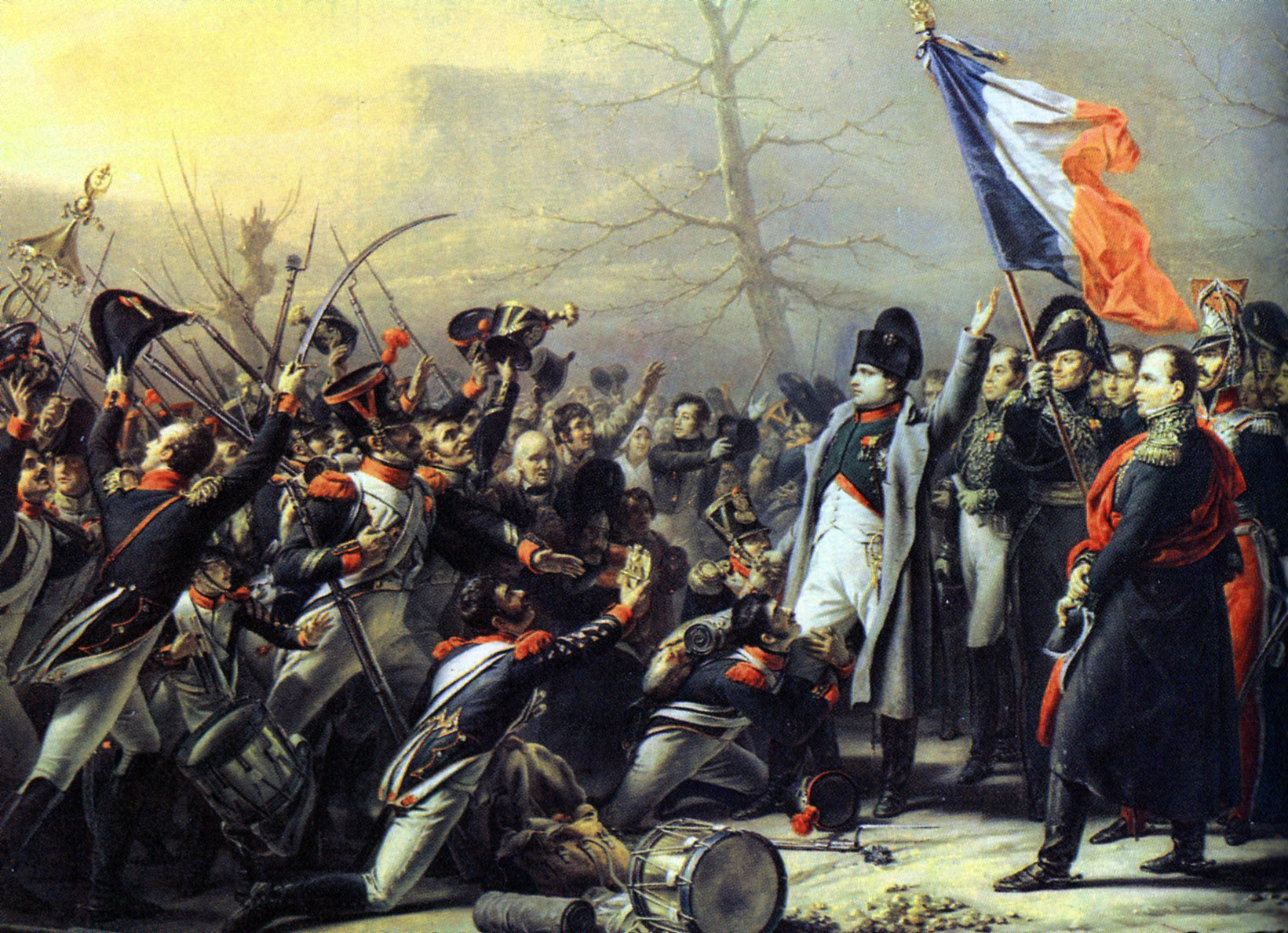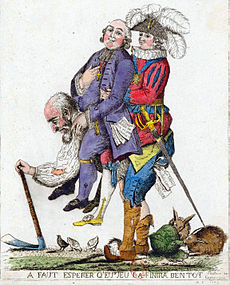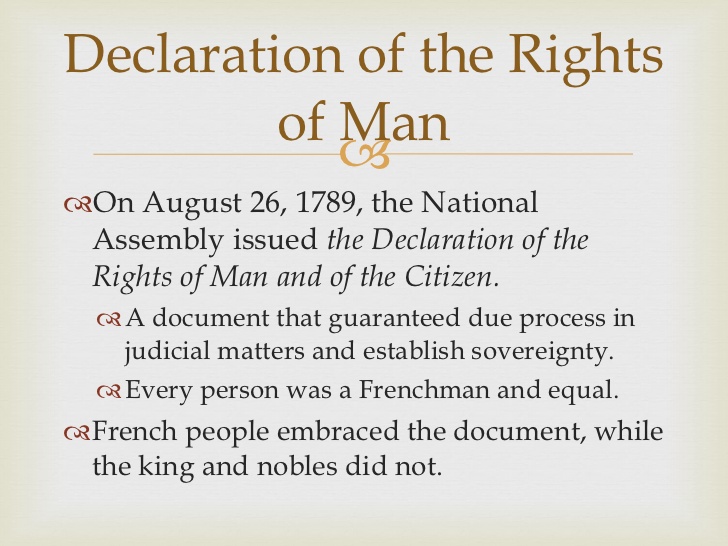U1L2 Shaping Nationalism
| Site: | MoodleHUB.ca 🍁 |
| Course: | Social 20-1 RVS |
| Book: | U1L2 Shaping Nationalism |
| Printed by: | Guest user |
| Date: | Friday, 26 December 2025, 7:43 AM |
Description
U1L2
Introduction
French Revolution and Shaping Nationalism
Key Issues
To what extent should we embrace nationalism?
To what extent do external and internal factors shape nationalism?
When you meet someone from the same nation, are there common understandings you readily share? Is there an easy acceptance of each other as members of the same nation?
In this lesson you will continue your inquiry into the relationship between nation, nationalism and identity as you explore examples of how a nation develops a sense of nationalism. You will also consider the role of historical, social, economic, geographic and political factors on the development of French nationalism.
Each of the following lesson inquiries will develop understandings to help you respond to the section question:
- Was there a French nation before 1789?
- Why and how did the French Revolution take place?
- How did nationalism develop during the French Revolution?
- How did Revolutionary France influence the spread of nationalism?
- Is nationalism a shared internalized feeling?
 |
TERMS |
Lesson
![]() RESOURCES
RESOURCES
Watch the following short introduction to the French Revolution and Nationalism.
Read and refer to Chapter Two as your resource for completing this lesson's assignment.
Chapter Two Highlights
What are Some Understandings of Nation?
Watch the song version of France Before 1789
![]() LESSON
LESSON
People have not always enjoyed the freedoms we, as Canadians, sometimes take for granted today. Under the Old Regime in France, a group called the Third Estate, by far the largest group, enjoyed virtually no rights yet bore the greatest burden for taxes.
Christians were powerful and the Church was the center of society. It controlled education, healthcare and culture. The government and the Church worked together to control the people. Over the years, the people from the Third Estate
began to question the feudal system. Society was ripe for change and nationalism was on the rise.
This age was referred to as the Dark Ages because so many of the cultural, political and educational
advances made by the Greeks and Romans were lost. As time passed and nation states developed, enlightened philosophers studied the democratic ideas of Ancient Greece and Rome and asked why these ideals were no longer applied.
As
enlightened ideas spread, citizens of the Thirteen Colonies, began to protest British control and waged a war against them. This is what lead to the French Revolution.
To understand nationalism, it is important to analyze how nationalism developed in the past and address the following questions:
- What happened during the French Revolution?
- Why did it happen?
To answer these questions, it is essential to understand the following Estates System and the factors that gave rise to nationalism.
Factors that shape nationalism include the following:
The Bastille was a Paris prison where, it was rumoured, the king locked up people who spoke out against him. On July 14, 1789, about 600 angry Parisians successfully attacked the Bastille and took control of this symbol of tyranny. These citizens formed a 'Collective Consciousness' and this event is usually considered to be the beginning of the French Revolution, and July 14 is now celebrated as a national holiday in France.

Caricature of the Third Estate carrying the First Estate (clergy) and the Second Estate (nobility) on its back.
Estates System
In 1789, this ruling elite made up about four percent of France's total estimated population of 26 million. The remaining 96 percent were considered common people. The ruling elite paid few taxes, but their power enabled them to accumulate great wealth by collecting taxes, rents, and other fees from the common people.

These conditions combined to destroy grain crops and create a shortage. As the shortage worsened, the prices of flour rose. As a result, many people could no longer afford to buy bread, which was a staple of their diet.

The 17 articles of the declaration set out these principles and became the basis of the new French constitution. This document has influenced all subsequent declarations and charters of rights.
The Reign of Terror
Backed by the newly approved Constitution of 1793, Robespierre and the Committee of Public Safety began conscripting French soldiers and implementing laws to stabilize the economy. For a time, it seemed that France’s fortunes might be changing. But Robespierre, growing increasingly paranoid about counterrevolutionary influences, embarked upon a Reign of Terror in late 1793–1794, during which he had more than 15,000 people executed at the guillotine. When the French army successfully removed foreign invaders and the economy finally stabilized, however, Robespierre no longer had any justification for his extreme actions, and he himself was arrested in July 1794 and executed.
The new government was week and set the stage for Napoleon's takeover. Napoleon Bonaparte led France at an exciting time in history. France had recently overthrown a powerful king and survived a year of bloodshed (during the Reign of Terror). You would think the people of France would have wanted a democratic leader to replace the old monarchy. But, Napoleon was far from a democratic man...read the notes below to learn more about his form of rule.
Assignment
Open a new Word document (or pdf). Label it SS20U1L2.surname
In the same document, complete parts A, B as outlined below.
Submit these assignments using the Assignment Folder for U1L2A_B French Rev.
Include a screen capture of your completed assignment! Crossword
WHAT ARE SOME FACTORS THAT SHAPED FRENCH NATIONALISM? In other words, what were the conditions at the time leading up to the French Revolution?
| 1. Main Historical Factor and its Significance | Storming of Bastille. Was significant because it was a symbol of the king’s tyranny and the unfairness of the present system |
| 2. Main Social Factors (i.e. three Estates) | |
| 3. Main Economic Factors | |
| 4. Main Geographic Factors | |
| 5. Main Political Factors | |
| 6. Impact of Reign of Terror | |
| 7. Impact of Napoleon |
In this document, complete part C as outlined below.
Submit this assignment using the Assignment Folder for U1L2C French Rev
- Paragraph 1 -Introduce the source and explain what the source conveys about Robespierre
- Paragraph 2 - Briefly explain the historical events at this time and detail Robespierre's actions during the reign of terror. Then connect the significance of his actions to the source.
- Paragraph 3 - Explain the main point one can deduce from this source and tell how this source helps us to better understand the topic.
- Paragraph 4 - Finally, with respect to the Reign of Terror, explain whether the end justified the means and support your response with reference to specific events surrounding the Reign of Terror.
- (be sure to combine all paragraphs into essay format).
SOURCE:
François Barras: This would make you dictator of France.Maximilian Robespierre: Yes.
François Barras: We didn't storm the Bastille to make any man dictator.
Maximilian Robespierre: I'm not "any man".
Robespierre History Maker
NOTE: the following video illustrates a source analysis for Social 30 concepts.
When writing your source analysis, simply focus your analysis to Social 20 topics of Nationalism and Ultranationalism.
Evaluation and Conclusion
Evaluation
Part A&B - /20
Part C - /20
Three scoring categories are used to mark the content of the following source analysis.
- Paragraph 1 -Introduce the source and explain what the source conveys about Robespierre
-
Paragraph 2 - Briefly explain the historical events at this time and
detail Robespierre's actions during the reign of terror. Then connect
the significance of his actions to the source.
- Paragraph
3 - Explain the main point one can deduce from this source and tell how
this source helps us to better understand the topic.
- Paragraph 4 - Finally, with respect to the Reign of Terror, explain whether the end justified the means and support your response with reference to specific events surrounding the Reign of Terror.
- 1) Analysis of Source (6 marks)
- 2) Quality of Arguments (7 marks)
- 3) Quality of Evidence (7 marks)
Conclusion
In this lesson you gathered background on the conditions existing in France before revolution. You examined what factors (historical, social, political, economic, and geographic) were in place that would later shape the emergence of France as a nation and the shared collective consciousness of the French people that they were of the same nation.
The events of the French Revolution began with the calling of the Estates General. It led to almost one decade of change for the people of France. Many historians mark the rise of Napoleon Bonaparte in 1799 as the leader of France as the end of the revolutionary period.